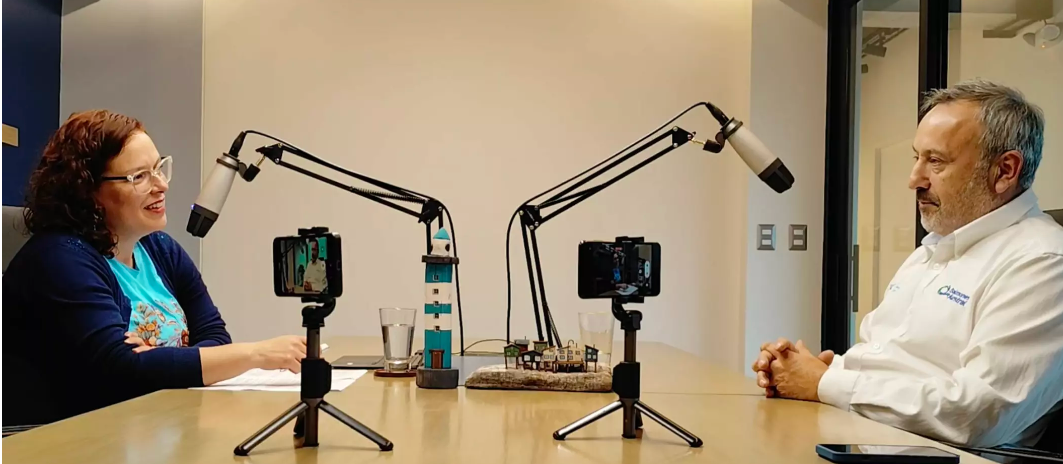
Although he began his career in marine centers, once he learned about freshwater farming, Andrés Sepúlveda knew it was his destiny, an area in which he has worked and perfected for more than 20 years.
The third episode of the second season of Sin Escamas dealt with one of the most important productive stages of salmon, its evolution and some myths surrounding freshwater.
On this occasion, the guest was Andrés Sepúlveda Cid, Freshwater Production Manager at Salmones Austral.
Engineer in Aquaculture Execution from the Osorno IPO Professional Institute, Andrés has 35 years of experience in aquaculture. He is an expert in salmonid production in open flow and recirculation systems, as well as the management of the Logistics and Operations area. For more than 20 years he has dedicated himself to specializing in salmon farming in its freshwater stage, and from 2013 to date he has held his current position.
“I had been working in seawater centers for three years, when the company, Salmones Unimarc, invited me to join the freshwater area and take charge of the cultivation of the three species in Lake Huillinco, in Chiloé, in four cultivation centers. . Until that moment, this area of salmon farming was unknown to me, but from that moment on I fell in love with freshwater, I think this area chose me and took me forward, it was destiny. And over the years I have specialized, since the dynamism that fresh water has makes one fall in love with it,” commented the professional.
The Salmones Austral executive highlighted the evolution that this area has had in Chilean salmon farming, taking into account that in the beginning everything was more rudimentary. “It has been a great learning experience. Nowadays everything is simpler, there is awareness of better treatment of fish, technology and automation have been very relevant and today it is easier to access them. I think that’s the way. Even so, fish farms, in essence, remain the same, but currently we have more control systems and technology that have taken them to the next level. But in essence they are still the same cultivation arts. I must highlight that genetic development has been very relevant, as it allows us to advance production cycles.”
In relation to controversial opinions held about the production of salmon in freshwater, Sepúlveda emphasized all the regulations and standards that govern this productive activity in all its areas. “The community can rest assured that the salmon industry is being constantly monitored and audited and is doing the right thing. In open flow fish farming, a lot of water is required and in RAS much less, but if the fish need good quality water to grow, and the water that we are obliged to return to the natural channel because they are waters for non-advisory use, it must be of equal or Better quality than the one you dealt with. This has self-controls and for no reason would the industry bet on not complying with this regulation. Regarding sludge, I can assure you that all fish farms comply with the removal and disposal of RILs and there are companies that send these sludge to composting companies, with the purpose of managing this waste in the best way and ensuring that it does not end up in landfills.”
You can see and listen to the full interview next Friday, May 10, on our Spotify and Apple Podcasts channels and through Salmonexpert TV on YouTube.
Source: www.salmonexpert.cl

